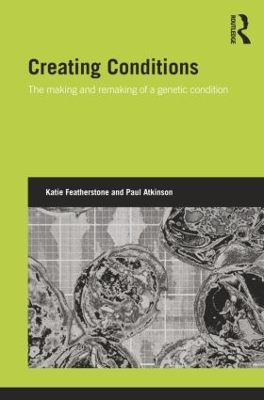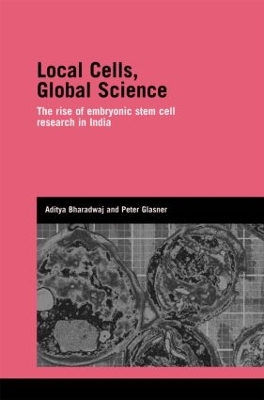Genetics and Society
4 total works
New Genetics, New Identities
by Paul Atkinson, Peter Glasner, and Helen Greenslade
Making of a Syndrome, The: The Making and Remaking of a Genetic Syndrome
by Katie Featherstone and Paul Atkinson
Based on original ethnographic research with scientists, clinicians and families, this book examines Rett syndrome to illuminate more general issues concerning the construction and interpretation of diseases and syndromes. It derives from research with a specialist team of clinicians and scientists, and a series of families referred with a potential diagnosis of Rett syndrome, and documents the scientific, clinical, patient and family experiences over a three-year period.
Although Rett syndrome itself is rare, it is one of some 2,000 such syndromes, and its genetic basis has recently been linked to the much broader Autism spectrum. From a sociological or anthropological point of view, it is also of considerable interest as a clinical entity that is undergoing transformation in the light of recent post-genomic research. Traditionally, such syndromes have been diagnosed clinically, but increasingly genetic technologies are having an impact on the diagnosis, description and classification of conditions. Rett Syndrome is thus a key exemplar of the implications of genetic medicine that are far-reaching and extend well beyond this particular syndrome.
One of the first studies of an exciting new development in global biotechnology, this cutting edge text examines the extent of the transnational movements of tissues, stem cells, and expertise, in the developing governance framework of India.
Documenting the impact of local and global governance frames on the everyday conduct of research, this groundbreaking book traces the journey of ‘spare’ human embryos in IVF clinics to public and private laboratories engaged in isolating stem cells for potential therapeutic application. The discussion also examines the gender dimension as a potential site for exploitation in the sourcing of embryonic and other biogenic materials, and suggests that a moral economy has developed in which the ethical values of the global 'North' support and encourage the donation of abundant and ethically ‘neutral’ embryos by the 'South'.
This unique exploration is grounded in an empirical, multi-sited ethnographic study that takes a thoroughly comparative analysis of the ethical, religious and social issues in Europe, the United States, and organ donations already prevalent in India. In this theoretically-sensitive analysis, the authors use the resources of social anthropology and the social sciences in an innovative text which will appeal to postgraduates and professionals in the areas of STS studies, genetics, bioethics, and anthropology.


